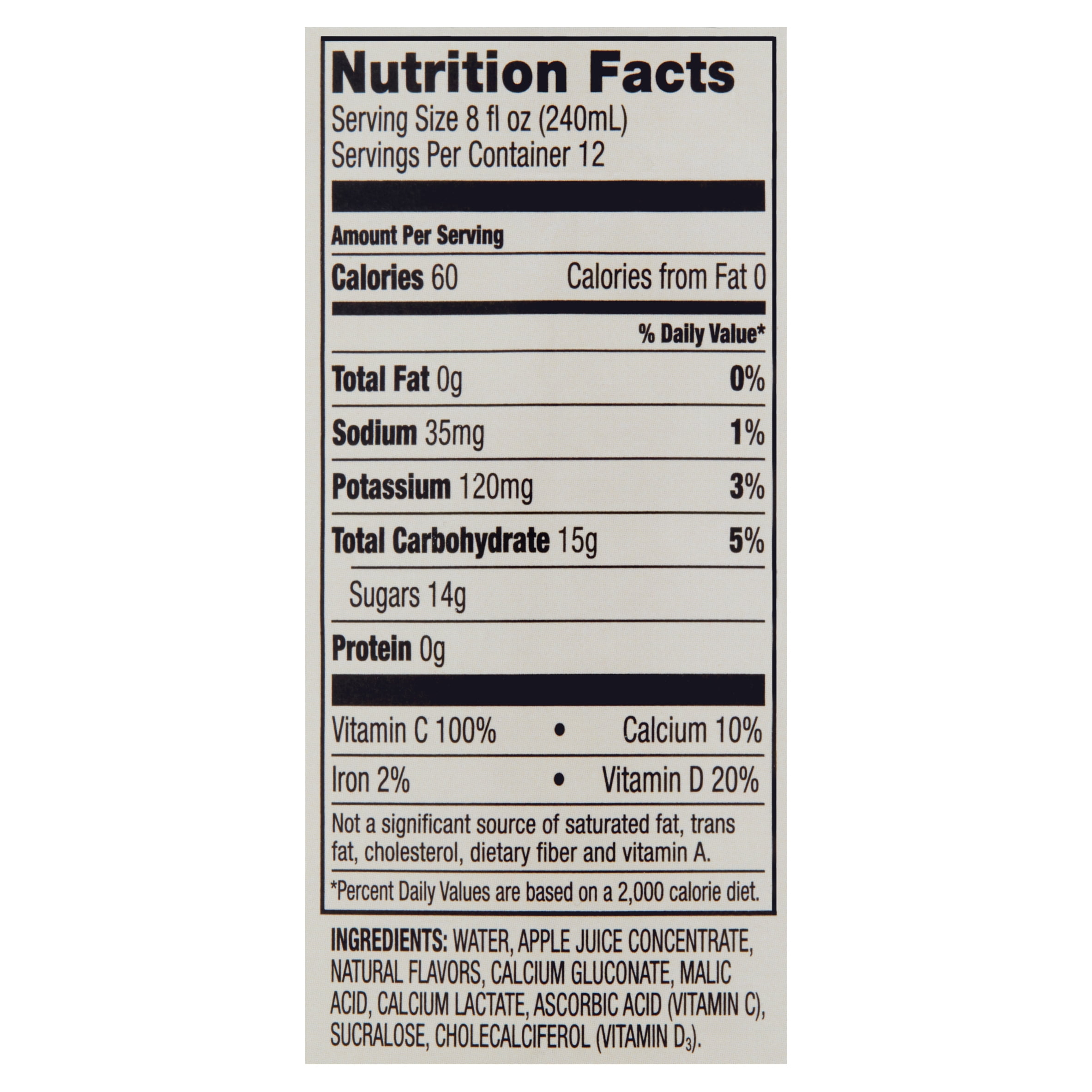Apple juice often evokes nostalgic memories of childhood, a wholesome beverage that seems like a healthy choice. However, beneath its seemingly simple facade, apple juice harbors a wealth of nutritional facts that many find surprising. This article will explore various aspects of apple juice, including its nutritional content, health benefits, and the impact of processing. Prepare to shift your perspective as we delve into the often-overlooked truths about this popular drink.
1. Nutritional Composition
Contrary to popular belief, apple juice is not merely a sugary beverage. A single cup (8 ounces) of 100% apple juice typically contains:
- Calories: Approximately 114
- Sugars: About 24 grams
- Carbohydrates: Roughly 28 grams
- Vitamins: A notable source of Vitamin C, providing about 100% of the Daily Value
- Minerals: Contains small amounts of potassium and magnesium
This composition reveals that apple juice is rich in natural sugars, mainly fructose, and can be a significant source of energy. However, the absence of dietary fiber, a key feature of whole apples, may alter how your body processes these sugars.
2. The Role of Antioxidants
Apple juice is celebrated for its antioxidant properties, thanks to the presence of flavonoids, particularly quercetin. Flavonoids play a crucial role in neutralizing free radicals in the body, which are responsible for cellular damage and aging. This antioxidant content makes apple juice more than just a thirst-quencher; it could contribute to long-term health by potentially reducing the risk of chronic diseases.
3. Heart Health and Apple Juice
Research suggests that apple juice may have a positive impact on cardiovascular health. The polyphenols present in the juice can improve heart function by enhancing nitric oxide levels, leading to better blood flow and lower blood pressure. A regular intake of apple juice, particularly if consumed in moderation, may assist in maintaining a healthy heart, making it a savvy addition to one’s diet.
4. Hydration and Electrolyte Balance
Hydration is crucial for overall health, and apple juice can be an excellent hydrating beverage. The water content in apple juice is significant, about 88%, making it a suitable option for replenishing fluids. Additionally, for individuals who engage in physical activities, the potassium in apple juice can help maintain electrolyte balance, particularly during hot weather or intense workouts.
5. A Natural Immune Booster
Vitamin C is renowned for its immune-boosting properties, and apple juice delivers this crucial vitamin in abundance. Regular consumption, particularly during the cold and flu season, may strengthen the immune response, helping the body ward off illness. Furthermore, the antioxidants help combat inflammation, contributing to a robust immune system.
6. The Processing Paradox
It is essential to understand the differences between 100% juice and processed varieties. Many commercial apple juices undergo pasteurization and filtration, which strip away some vitamins and phytochemicals. This processing can result in reduced health benefits compared to freshly pressed juice. Always opt for 100% apple juice with no added sugars or preservatives to maximize nutritional benefits.
7. Glycemic Index Considerations
The glycemic index (GI) of apple juice typically ranges around 40-45, classifying it as a moderate-GI food. This characteristic indicates that apple juice can cause a gradual rise in blood sugar levels rather than a spike. For individuals with blood sugar concerns, it is worth noting that moderation is key to incorporating apple juice into a balanced diet. Pairing it with protein or healthy fats can further stabilize blood sugar levels.
8. A Nutritional Alternative to Sugary Drinks
In a world increasingly governed by sugary sodas and artificial beverages, apple juice can stand out as a more wholesome alternative. It provides a natural sweetness that can satisfy cravings without the artificial ingredients associated with many soft drinks. It can easily be integrated into smoothies or used as a base for refreshing beverages, effectively reducing reliance on more sugary counterparts.
9. Culinary Versatility
The versatility of apple juice extends beyond a simple drink. It can be used as a marinade for meats, a sweetener in dressings, or even a base for sauces. The culinary potential of apple juice adds a layer of creativity to healthy eating, enabling its use in various recipes while still reaping its health benefits.
10. Potential Risks and Considerations
While apple juice offers various health benefits, it is not without potential downsides. The absence of fiber can make it easier to consume high amounts of sugar without feeling satiated. People purchasing juice should exercise caution concerning portion sizes and frequency of consumption. Additionally, those with specific dietary restrictions, such as fructose intolerance, should remain vigilant about their apple juice intake.
Now, with renewed awareness of the multifaceted nutritional aspects of apple juice, you might reconsider its place in your diet. Acknowledging the balance between enjoyment and health can transform apple juice into a beneficial addition to your nutritional regimen, one that tantalizes the taste buds while providing substantial health advantages.Cultivate an informed perspective that allows you to appreciate apple juice not just as a beverage but as a functional component of a balanced diet. So, the next time you pour yourself a glass, remember the hidden gems of nutrition swirling within that liquid amber.











